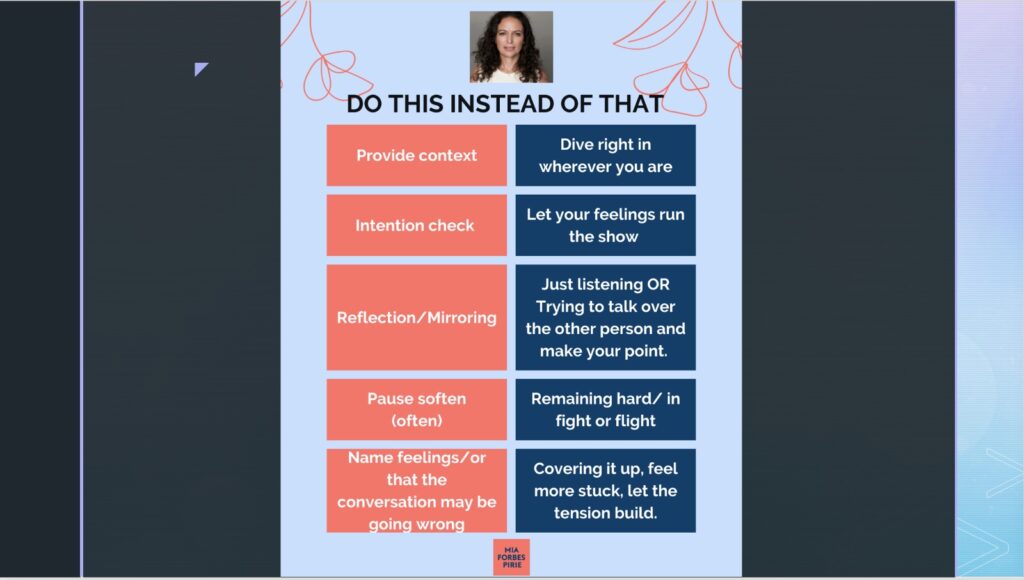
I’ve been working with some clients recently to come up with effective ways of having conversations that avoid friction and help them to disagree with each other constructively. I’ve posted about this and I wanted to share and elaborate on some of the tips that we came up with because I think they will be helpful.

The first strategy is to provide context instead of diving right in wherever you are. It’s easy to assume that others will follow our train of thought, but it’s important to give them an opportunity to understand where you’re coming from and how you got there. By providing a bit of background and explaining what you want to talk about, you can avoid misunderstandings and make sure that everyone is on the same page.

The second strategy is to check your intentions before having the conversation instead of letting your feelings rule the show. Take a moment to reflect on how you’re feeling and why you’re having this conversation. If you notice any negative emotions or confrontational tendencies, ask yourself what you really want to achieve with this conversation (there’s a great book called Crucial Conversations about this). This can help you come from a place of understanding and openness, rather than defensiveness or aggression. It influences your tone, approach, and attitude towards the other person.

The third strategy is to reflect and mirror what you’re hearing from the other person instead of just listening or talking over them. Instead of just listening or talking over the other person to make your point, try reflecting back what they’re saying. By reflecting back what the other person is saying, you show that you’ve understood them and give them a chance to correct any misunderstandings. This can help you avoid unecessary friction and a create deeper trust and connection.

The fourth strategy is to pause and soften instead of remaining in a fight, flight or freeze mode. When we’re in FFF mode, we lose a lot of our faculties. For example our ability to be nice to the other person decreases as does our ability to think rationally. By reminding yourself to pause and soften from time to time, you can reduce the effects of being in this mode and approach conversations from a place of calm and openness.

Finally, it’s important to be able to name what you’re feeling or acknowledge when the conversation may not be going in the direction you had hoped. Instead of staying stuck or trying to sweep things under the carpet, it helps to be honest with yourself and the other person. If you’re not feeling so good about things or you’ve realised that the conversation isn’t going in a great direction, try expressing this in a friendly and respectful way. By being open about your feelings and concerns, you can create a safe and supportive space for honest communication. Additionally, if you realize that the conversation isn’t going in a great direction, you can ask the other person for their suggestions on how to make things better. This can help you work together to find a positive and productive way forward.
I hope these strategies are helpful for you in your conversations with others. Remember, communication is a key component of any successful relationship, and taking the time to have difficult conversations in a productive and respectful way can lead to better outcomes. If you have any questions or would like to discuss further, feel free to reach out to me.
